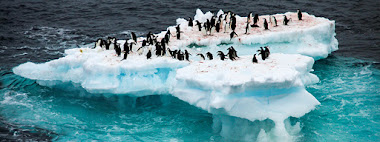Mantra of climate change: Reduce & Reverse emissions
By Dr. Arvind Kumar, President, India Water Foundation
Global
fossil CO2 emissions reached a new record high of 36.7 Gigatonnes in 2019, 62%
higher than in 1990 with human activities emitted 42 billion tonnes of CO₂
in 2019 alone. With CO2 emissions in the early 2020s fallen by an estimated 7%
due to COVID-19, let us not take a step back to further our efforts towards
curbing the emissions and especially when we have to ensure our commitments
under Paris Agreement. Given this glaring statistics, how can we fill the gaps
to close this climate variability?
The
above facts are presented in United in Science Report 2020 compiled by World
Meteorological Organization under the direction of the United Nations
Secretary-General to bring together the latest climate science related updates
from a group of key global partner organizations such as Global Carbon Project
(GCP), UNESCO Intergovernmental Oceanographic Commission (UNESCO-IOC),
Intergovernmental Panel on Climate Change (IPCC), UN Environment Programme
(UNEP) and the Met Office.
The
world is set to see its warmest five years on record – in a trend which is
likely to continue - and is not on track to meet agreed targets to keep global
temperature increase well below 2 °C or at 1.5 °C above pre-industrial levels.
In the words of António Guterres, Secretary-General of the United Nations,
“Never before has it been so clear that we need long-term, inclusive, clean
transitions to tackle the climate crisis and achieve sustainable development,
he is right to point on the need to recover towards actions that speak
partnerships to crack the code of climate change. In fact, it is noted that
2016–2020 is expected to be the warmest on record with an average global mean
surface temperature of 1.1 °C above pre-industrial era (1850–1900). The report
also highlights the increasing and irreversible impacts of climate change
affecting glaciers, oceans, nature, economies and human living conditions and
is observed through water-related hazards like drought or flooding or melting
of glaciers. The global ocean, a considerable carbon sink has warmed unabated
since 1970 and has taken up more than 90% of the excess heat in the climate
system.
This
directs the need for increased global coordination to partner along clean and
green measures and climate-friendly stimulus to expand their green recovery
efforts in order to sustain on Planet A, as there is no Planet B. We ought to
acknowledge the fact that human-induced climate change is affecting life-sustaining
system and turning a deaf ear to the cries of climate change shall worsen the
situation further.
We
need science, solidarity and solutions. Moreover, it is still possible to
bridge the emissions gap, but will require concerted and integrated actions by
all countries. Adaptation and integrated risk management responses should be
directed towards mitigating the risks and restoring the ecosystem. We need to
increase resilience through complementary networks across surface and
space-based platforms to curb our emissions. The European Union is at the
greener end of the spectrum with about 30 per cent of its €750 billion stimulus
plan and its €1.1 trillion ($1.3 trillion) 2021-2027 budget dedicated to
climate-friendly investments and France and Germany are front-runners in green
measures. Our Environment minister Shri Prakash Javadekar is optimistic that
India will reduce carbon emissions by 35% in 10 years with committed green
endeavors and called for up-scaling solar power capacity from 175 to 220 GW by 2022,
which is commendable.
Today,
we witness that emissions are heading in the direction of pre-pandemic levels
following a temporary decline caused by the lockdown and economic slowdown.
But, this is a temporary respite. Sustained reductions in emissions are
required to stabilize global warming. Let’s turn to the COVID as opportunity to
reverse the climate trend and build our Future Green and Better for times to
come.




Thank you for the good writeup. It if truth be told was once a amusement account it. Glance complex to more brought agreeable from you! However, how could we be in contact? soft commodity market
ReplyDelete